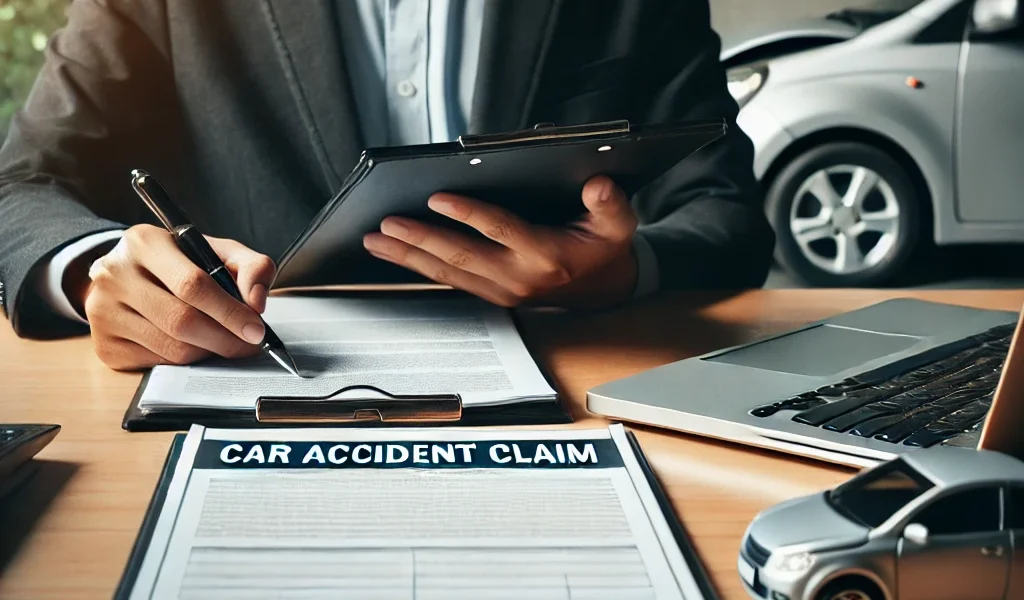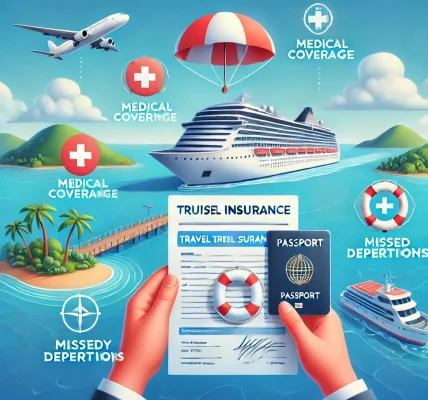A car accident can be a traumatic and costly event, often leaving victims with medical bills, lost wages, and vehicle repair costs. If you’ve been involved in a car accident, understanding how to maximize your insurance claim is crucial to receiving the compensation you deserve.
This guide will help you navigate the claims process, avoid common mistakes, and ensure you get the best possible settlement for your losses.
Understanding Car Accident Insurance Claims
When you file a car accident claim, you are seeking compensation from an insurance company—either your own or the at-fault driver’s insurer. The type and amount of compensation you receive depend on various factors, including policy coverage, fault determination, and the evidence you present.
Types of Coverage That May Apply
- Liability Insurance: Covers damages if you are at fault and need to compensate the other party.
- Collision Coverage: Pays for repairs to your own vehicle, regardless of fault.
- Comprehensive Coverage: Covers non-collision damages like theft, vandalism, or weather-related incidents.
- Medical Payments (MedPay) or Personal Injury Protection (PIP): Covers medical expenses for you and your passengers.
- Uninsured/Underinsured Motorist Coverage: Protects you if the other driver doesn’t have enough insurance.
Steps to Maximize Your Car Accident Claim
1. Seek Medical Attention Immediately
Even if you feel fine after the accident, get a medical evaluation. Some injuries, like whiplash or internal bleeding, may not be immediately apparent. A medical report also serves as crucial evidence when filing your claim.
2. Call the Police and Obtain a Report
A police report provides an official record of the accident, which can help support your claim. It typically includes details about the parties involved, witness statements, and the officer’s assessment of fault.
3. Gather Evidence at the Scene
- Take photos of the accident scene, vehicle damage, road conditions, and visible injuries.
- Collect contact information from witnesses.
- Exchange insurance and contact details with the other driver.
4. Notify Your Insurance Company Promptly
Report the accident to your insurer as soon as possible. Delaying your claim could lead to complications or denial of coverage.
5. Avoid Admitting Fault
When speaking with the other driver, police, or insurance adjusters, do not admit fault. Stick to the facts and let the investigation determine liability.
6. Keep All Accident-Related Records
Maintain a file with:
- Medical records and bills
- Repair estimates and invoices
- Correspondence with insurance companies
- Proof of lost wages if the accident caused you to miss work
7. Get a Fair Repair Estimate
Obtain multiple repair estimates to ensure the insurance company’s valuation is reasonable. You can choose your own repair shop rather than accepting the insurer’s recommendation.
8. Be Cautious When Speaking to Insurance Adjusters
Insurance adjusters work for the insurance company and may attempt to minimize your payout. Stick to the facts, avoid speculation, and do not agree to recorded statements without legal advice.
9. Negotiate for a Fair Settlement
Insurance companies often start with a low offer. Be prepared to negotiate by:
- Presenting evidence of your losses
- Comparing similar claim settlements
- Seeking legal advice if necessary
10. Consider Hiring a Personal Injury Attorney
If your claim involves serious injuries, disputed liability, or a lowball settlement offer, an attorney can help maximize your compensation by handling negotiations and legal proceedings.
Common Mistakes That Reduce Car Accident Compensation
- Not Seeking Medical Treatment: Delaying medical care can harm your health and weaken your claim.
- Accepting the First Offer: Initial settlement offers are often lower than what you deserve.
- Failing to Document Damages: Without proper documentation, insurers may dispute your claim amount.
- Not Understanding Policy Coverage: Know what your policy covers to avoid missing out on compensation.
- Posting About the Accident on Social Media: Insurers may use your posts against you to reduce or deny your claim.
How Long Does It Take to Settle a Car Accident Claim?
The time it takes to resolve a claim depends on:
- The complexity of the accident
- The severity of injuries
- Insurance company processing times
- Whether liability is disputed
Straightforward claims may be settled in a few weeks, while more complicated cases could take months or even years.
Final Thoughts
Maximizing your car accident claim requires careful documentation, strategic negotiations, and an understanding of insurance policies. By following the steps outlined above, you can strengthen your case and increase your chances of receiving fair compensation. If necessary, seek professional legal advice to ensure your rights are fully protected.




